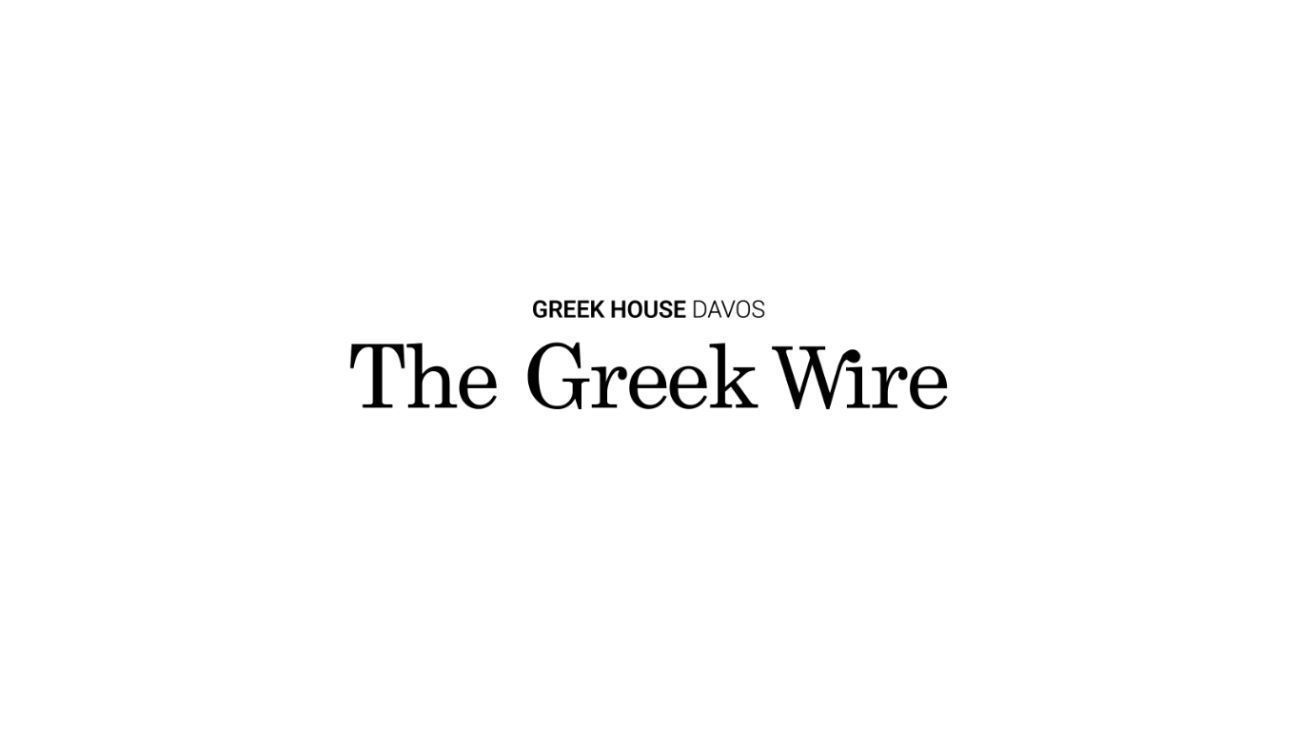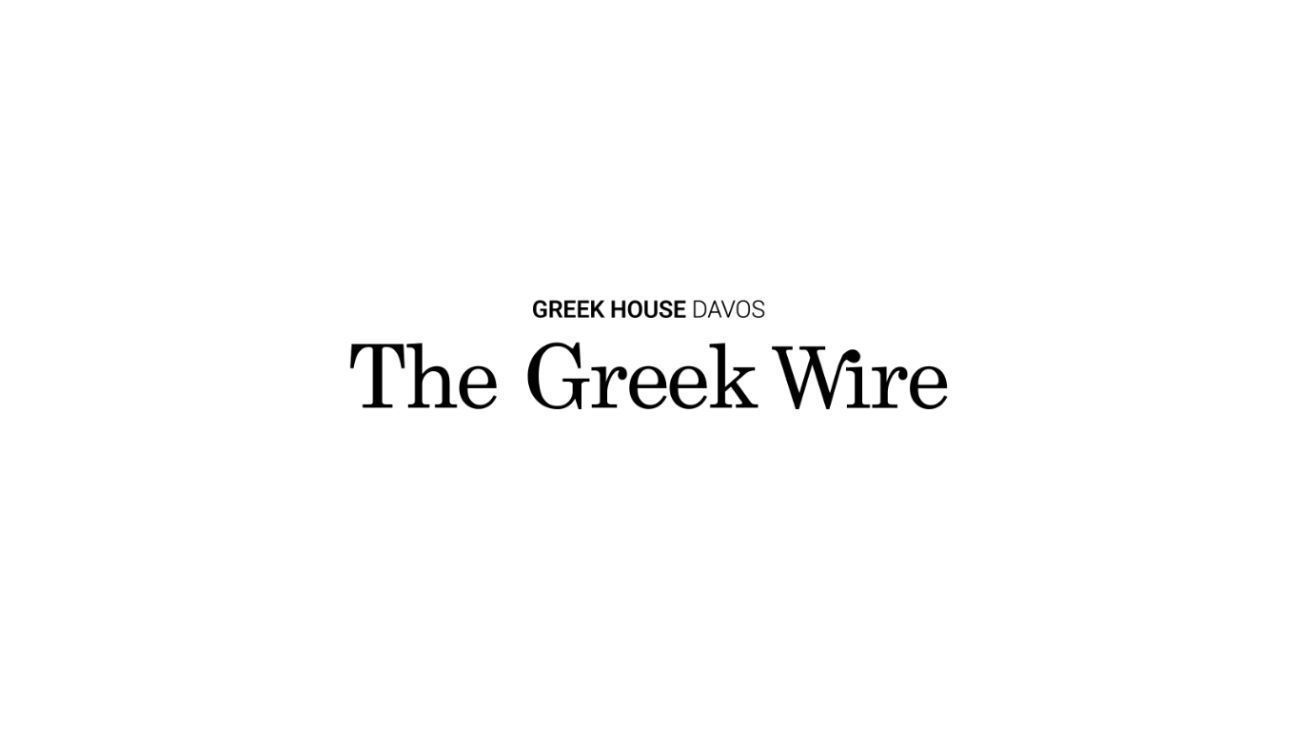06 Mar 2021
The week that was... powered by European Business Review

Dozens of buildings were severely damaged by a second powerful earthquake that rocked the region of Larissa in central Greece on Thursday night. Infrastructure Ministry crews, meanwhile, were reporting damage to dozens of businesses, churches and public buildings, while rockfalls hindered passage on several parts of the road network and water pipes in many areas were cracked and pumping muddy water. Some 300 residents of the village of Damasi have been transferred to a hotel with another 50 to follow on Friday, though around 120 people were still sleeping in tents on Thursday night in Tyrnavos. Thursday’s 8.38 p.m. earthquake came after a magnitude 6-Richter tremor that hit Larissa at around noon on Wednesday and was followed by several powerful aftershocks.
When the Greek government decides it is ready to embark on this investment, the U.S. government has said that it is willing to collaborate with Greece, stated US Ambassador in Athens Geoffrey Pyatt on Thursday, in response to a question on Greece's possible acquisition of F-35 fighter jets. He also noted that the F-35s are a complex system and, quoting the manufacturer Lockheed Martin, he referred to a lengthy process, lasting approximately five years from the contract to development. In terms of Greek-Turkish relation, Pyatt said that the US supports the efforts of Prime Minister Kyriakos Mitsotakis and Foreign Minister Nikos Dendias to put exploratory talks back on track, underlining that the ball is now in Ankara's court in terms of replying to the Greek proposal for a new round of talks in Athens. "We prefer the current situation to the one we experienced in August," Pyatt added.
At the same time, Foreign Minister Nikos Dendias said that sanctions against Turkey need to remain on the European Union table as a tool to prevent new provocative and illegal actions. During the online Inter-Parliamentary Conference of the MED7 group this week, Dendias spoke of the “hybrid threats” to the region, mainly the instrumentalisation of the migration issue by Turkey against Greece and Cyprus. He pointed out, after the tangible results achieved in the field and under the pressure of US sanctions and EU Council decisions, there was finally a partial de-escalation. He stressed that a positive EU-Turkey agenda can only be achieved if Turkey consistently demonstrates a constructive stance in the region, respecting international law and EU criteria, which, he added, has not yet happened.
The Migration & Asylum Ministry has submitted a technical report to the European Commission requesting funding for the extension of the two-month hotel accommodation program for migrants granted refugee status, the ministry said yesterday. The program was first implemented in September 2020 by both the ministry and the International Migration Organization, and concerns some 1,500 to 2,000 people. A total of 2,504 people who have been granted refugee status have so far been accommodated through the program, according to the International Organization for Migration (IOM). The number of accomodations (mostly hotels) is shrinking, IOM said: from 50 hotels housing 5,500 individuals in Dec. 2020, to 25 housing nearly 3,300 in Jan. 2021, down to the current 5 hotels housing 1,000 people.
Although still invisible, the novel coronavirus (SARS-CoV-2) is no longer unknown, it is not "terra incognita", as when it first appeared, the professor of the Medical School of the National and Kapodistrian University of Athens, Rector Thanos Dimopoulos, said on Friday in an interview with the Athens-Macedonian News Agency (ANA). According to him, it is one of the most important threats in the modern history of mankind, adding however that with the new treatment options, in combination with the approval of more and more effective and safe vaccines and the mass vaccination of the population, we can be optimistic about tackling the pandemic. Dimopoulos estimated that in the war against the virus the health systems and the scientific bodies of each country have essentially formulated the strategy of dealing with COVID-19 at national level, taking into account the conditions in their country, the material infrastructure, the reserves of the health system and the ever-changing epidemiological curve.
Meanwhile, if residents continue to flout health safety measures, Covid-related fatalities could reach as many as 100 a day and new daily infections could pass the 3,000-mark, a virology expert warned this morning, adding that Attica, in particular, is “still at risk of collapse.” “Many people say that the measures are unfair and unreasonable, but it is hard to find ideal solutions; you need simple rules and simple measures. When you’re at war, the rules need to be simple and must be applied by everyone,” Dr George Pavlakis, senior investigator at the human retrovirus section of the American Center for Cancer Research of the National Cancer Institute, said. “Ideally, we should shut everything down completely for two or three weeks,” he added. “For a year now, Greece has avoided the kind of massive tsunami that hit Bergamo,” he said in reference to the Italian city that mourned thousands of Covid-related fatalities a day at the peak of the pandemic last year. “I hope it manages to avoid it completely, because we’re in the final stretch now.” On the upside, Pavlakis noted that Greece is at a better place today than it was earlier in the pandemic. “We have averted disaster, something that is very important, and now we have the vaccines and spring on the way,” he said. However, Pavlakis also warned that he expects new infections to continue rising over next couple of weeks, with a possible de-escalation of cases starting the week after then, “if measures are applied,” throughout Greece but in Attica in particular. “I am hoping that we will see the peak towards the middle of next week. I cannot make any projections if we don’t see the peak of the wave,” Pavlakis said.
The leader of main opposition SYRIZA Alexis Tsipras has derided the government’s overall handling of the coronavirus pandemic as a “great failure”. Speaking in Parliament on Thursday, the party leader bemoaned that Greece has entered the fifth month of lockdown with no results to show. “We had four months in a row of text messages for the movement of citizens, traffic bans, with the economy, retail and catering closed, and schools closed,” he said. “What has been achieved?” he asked, wondering if the government knew of any other European Union country that has had “such a prolonged and failed lockdown as ours.” “In no other European country have schools and retail been closed for four months,” he stressed, also noting that restaurants have been closed for six months. “Something is not going well,” he said.
Eight out of ten respondents in a latest opinion poll answered affirmative when asked if they'll be vaccinated against the Covid-19 virus, with 18 percent saying they will definitely or probably not seek the jab. Moreover, 61 percent of respondents said they would like to be vaccinated "as soon as possible"; 14 percent said after two or three months, followed by another 14 percent who picked the "much later" option; nine percent favored "never". On the main political stage, ruling New Democracy (ND) continued to field a wide double-digit percentage point lead over main opposition SYRIZA, despite months of a pandemic "lockdown" and its repercussions on the economy. Specifically, center-right ND received 38 percent of respondents' preferences to 23 percent for leftist SYRIZA, a difference of 15 percentage points. 10 percent of respondents were undecided or declined to answer. In terms of voter intent based on the entire sample, ND is given 36 percent to SYRIZA's 22 percent. Asked who is more suitable for prime minister, the current premier, Kyriakos Mitsotakis, was preferred by 44 percent of respondents; the answer "neither of the two" came in second with 27 percent, while SYRIZA leader and former prime minister Alexis Tsipras was preferred by 25 percent of respondents.
The Greek government has raised its projection for the cost of support measures for the society and the real economy to 11.6 billion euros this year, from an initial forecast of 7.5 billion euros, due to the persistence of negative pandemic data, Finance Minister Christos Staikouras said yesterday. FinMin said that the lockdown cost 750 million euros each week. He added that the burden on the state budget from the new extension of restrictive measures until March 16 will total 1.2 billion euros, of which 520 million in measures to support commerce. Staikouras said that the country's cash reserves amounted to 34 billion euros, although he noted that available funds were not unlimited. He underlined that proper management, combined with the country's ability to borrow from capital markets and a relaxed fiscal policy framework agreed on a European level, were the key to success. He said that the Finance ministry was not taking into account only the needs to the end of the pandemic crisis, but also the financing needs of the real economy and society in the post-Covid era. Staikouras said that that government has supported the real economy with 27 billion euros so far during the pandemic crisis and stressed that the government has prepared a funding plan of projects and reforms to be funded by the Recovery Fund. He said that Greece expected the disbursement of 5.5 billion euros from the Recovery Fund this year (4.2 billion in support and 1.3 billion in loans).
The European Stability Mechanism (ESM) issued its approval on Thursday for the second early loan repayment by Greece to the International Monetary Fund, worth around 3.3 billion euros. The boards of directors of the ESM and the European Financial Stability Facility (EFSF) agreed to waive the mandatory early repayment obligation of ESM/EFSF loans in connection with the second early repayment to the IMF that Greece is planning, the ESM announced.
Greek banks are making plans to ease borrowers back to normal debt servicing schedules once repayment holidays introduced during the coronavirus crisis come to an end so they can avoid a sudden shock that could prompt a wave of defaults. Banks in Greece deferred repayments on about 30 billion euros ($36.26 billion) worth of loans last year to help 400,000 borrowers – individuals and businesses – cope with the financial fallout from the Covid-19 pandemic, the country’s bank association has said. But under European Banking Authority rules, deferral periods cannot exceed nine months, which means time is running out and borrowers must soon resume normal payments. There are concerns that a sudden return to normal repayments by borrowers weakened by coronavirus lockdowns could add to the banks’ already high levels of impaired loans. As a result, the banks are looking at a variety of “step-up” repayment plans.
Officials from supermarkets and the food and homeware industry agree that organized retailing may enjoy a marginal increase in sales volume in 2021 compared to what was already a robust 2020, according to a survey by the Research Institute of Retail Consumer Goods (IELKA). The projections for this year are made in comparison to 2020, which saw turnover grow by 9.7% year-on-year according to Nielsen data, or 800 million euros. The survey estimated a small decline of 0.2% on average over the first half of the year on an annual basis, but this is expected to reverse in the second half to lead to an overall result of 0.1% growth for the entire year. The reasons the projections have now turned from negative (in IELKA’s previous survey) to positive are the continued lockdowns that have kept other sections of the retail market closed, and the anticipated recovery of the tourism sector this summer that will see consumption and food service rebound, benefiting supermarkets. Nielsen data showed that supermarket turnover amounted to €11.34 billion last year, led by the market’s main player, Sklavenitis, which enjoyed an annual rise of 19.5% in turnover.
This week’s “Innovative Greeks” inaugural event concluded that the Greek startups ecosystem has evolved rapidly through the incentives and investment tools granted to investors and companies, according to sector representatives. The event organized by the Hellenic Federation of Enterprises and Endeavor Greece heard Deputy Development and Investment Minister Yiannis Tsakiris note that the ecosystem “has succeeded and is growing,” and stress that funding vehicle Equifund is proceeding at a satisfactory rate leading to the investment of more than 150 million euros in about 120 companies. “This is a success provided that these companies are profitable,” he said. Tsakiris also announced the offering of a new funding tool in the next few days, amounting to €60 million, aimed at technology transfer funds that finance projects and spinouts of research organizations. Representatives of foreign investment funds such as Bain Capital Ventures and Insight Partners – which have already invested in local startups – highlighted the scientific talent in the country that could be used to strengthen the startups ecosystem.








